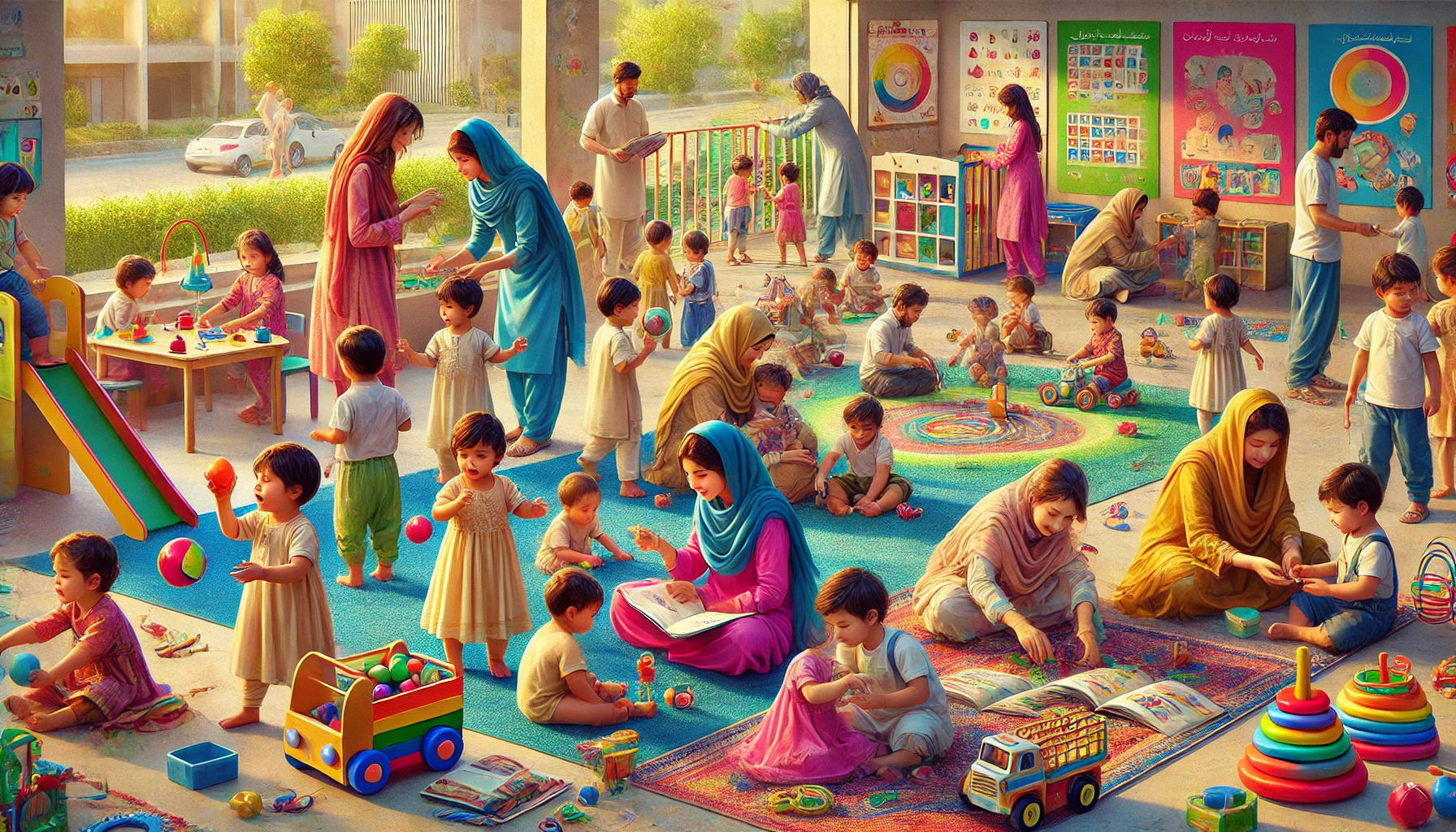Understanding Gender Sensitivity in Early Childhood Development in Pakistan
Girls aged 0-35 months in Pakistan are more sensitive to parental distress and low psychosocial stimulation than boys, highlighting the need for gender-specific early childhood interventions. For children aged 36-72 months, both genders benefit equally from early childhood education enrollment and psychosocial stimulation, underscoring the universal importance of these factors.

- Country:
- Pakistan
A recent study conducted by the World Bank has brought to light crucial insights into the impacts of psychosocial stimulation, parental distress, and early childhood education (ECE) enrollment on early childhood development (ECD) outcomes in Pakistan. This study, using data from a nationally representative phone survey, focused on children in two age cohorts: those aged 0-35 months and those aged 36-72 months. The primary aim was to explore whether these factors have different associations with developmental outcomes for boys and girls. The study's findings provide a nuanced understanding of how gender influences early childhood development in the context of psychosocial and educational variables.
Gender Sensitivities in Early Development
The research revealed that among very young children (0-35 months), lower levels of parental distress and higher levels of psychosocial stimulation were strongly associated with better child development outcomes for both boys and girls. However, the study found that girls were more sensitive to higher levels of parental distress and lower levels of psychosocial stimulation than boys. In environments with low levels of stimulation and high levels of parental distress, girls in the sample fared worse in their developmental outcomes compared to boys. This heightened sensitivity among girls underscores the need for gender-specific interventions in early childhood care programs.
Consistent Benefits Across Older Children
For the older cohort of children (36-72 months), the associations between psychosocial stimulation, parental distress, and developmental outcomes were consistent across genders. Lower psychosocial stimulation and higher parental distress were similarly linked to poorer developmental outcomes for both boys and girls. The study also highlighted the positive role of early childhood education enrollment in promoting better developmental outcomes for children in this age group. Access to ECE was associated with improved development for both genders, affirming the critical importance of early learning opportunities in supporting child development.
Addressing Gender Disparities from Early Age
The study's exploration into these dynamics is particularly significant in the context of Pakistan, where gender disparities in education and employment remain stark. As of recent data, only 23% of women participate in the labor force compared to 81% of men, and more girls aged 5-16 are out of school than boys. These disparities extend into early childhood, with ECE enrollment rates being slightly lower for girls across various provinces. The findings from this study suggest that addressing these gender disparities from a very early age could have long-term benefits for educational attainment and overall development.
Psychosocial Stimulation’s Critical Role
In examining the specific influences of psychosocial stimulation, the study found that it had a strong positive association with early childhood development for both boys and girls in the younger cohort. However, this positive effect was more pronounced for girls, indicating that they benefit significantly from increased stimulation. This suggests that interventions aimed at enhancing psychosocial stimulation in the home environment could be particularly beneficial for girls, who are more adversely affected by lower levels of stimulation.
Supporting Parental Mental Health
Parental distress emerged as a significant risk factor for early childhood development, particularly among younger children. The study's results showed that higher levels of parental distress were associated with poorer developmental outcomes for both genders, but the effect was stronger for girls. This finding highlights the importance of supporting parental mental health as a strategy to improve child development outcomes. Interventions that address parental distress, particularly maternal depression, could have a profound impact on enhancing the developmental trajectories of young children, especially girls.
For the older children, enrollment in early childhood education was found to be a robust predictor of better developmental outcomes, with no significant gender differences in its effects. This finding underscores the universal benefits of ECE and supports the argument for expanding access to quality early childhood education programs for all children. Given the existing gender disparities in ECE enrollment, targeted efforts to increase enrollment rates among girls could help mitigate long-term educational inequalities.
Overall, the study contributes to the understanding of how gender moderates the effects of key risk and protective factors on early childhood development in Pakistan. The findings suggest that while both boys and girls benefit from psychosocial stimulation and ECE, girls are more vulnerable to the negative impacts of parental distress and lack of stimulation in their early years. These insights point to the need for gender-sensitive policies and interventions that support both child development and parental well-being. By addressing these factors through comprehensive early childhood care and education programs, policymakers can help ensure that all children, regardless of gender, have the opportunity to reach their full developmental potential.
- FIRST PUBLISHED IN:
- Devdiscourse










